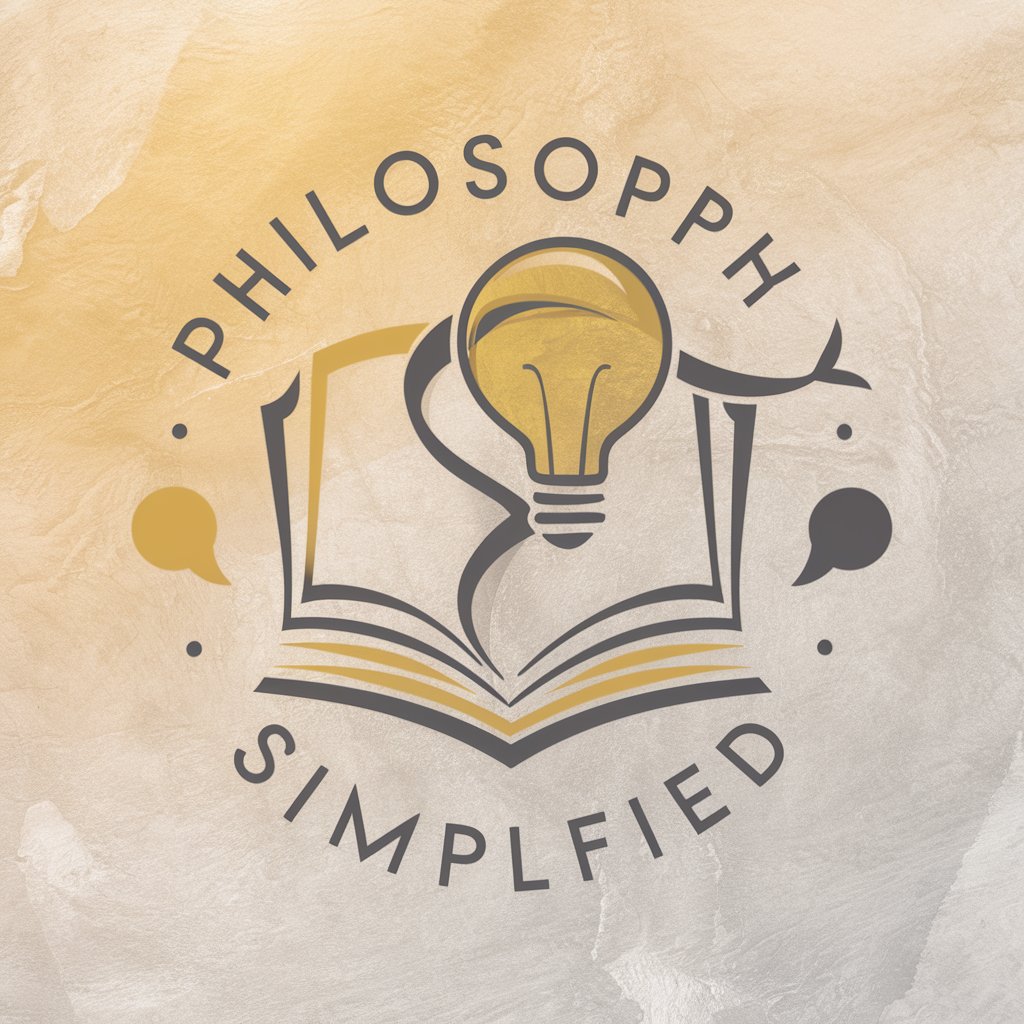Psychology Research Assistant - psychology research-based answers.

Welcome! Ask me anything about Psychology and Neurology.
AI-powered insights for psychology research.
What does recent research say about stress and the brain?
Can you cite a study on cognitive therapy effectiveness?
Explain the neuroscience behind meditation.
Describe a psychological theory and its research background.
Get Embed Code
Introduction to Psychology Research Assistant
The Psychology Research Assistant is a specialized AI tool designed to assist users in exploring, understanding, and applying knowledge from psychology, neurology, and neuroscience. It provides in-depth, research-backed answers to questions ranging from theoretical concepts to practical applications in these fields. The AI is optimized to interpret psychological phenomena, neurological mechanisms, and neuropsychological interventions, offering users academic insights, professional advice, or personalized research. Its design focuses on bridging the gap between scientific literature and practical application, making it an essential resource for researchers, clinicians, students, and individuals with an interest in these disciplines. The tool is able to deliver content at various levels of technicality, from complex, peer-reviewed research explanations to more accessible, beginner-friendly definitions. **Example 1:** A psychology researcher working on a study related to the cognitive effects of trauma may use the Psychology Research Assistant to find relevant studies, explanations of neural mechanisms involved in trauma responses, or clarification of technical terms such as 'amygdala hyperactivation.' **Example 2:** A clinical psychologist might use it to explore recent therapeutic techniques in cognitive-behavioral therapy (CBT), while a neuroscience student could ask for a breakdown of brain structures involved in memory consolidation. Powered by ChatGPT-4o。

Key Functions of the Psychology Research Assistant
Providing research-backed explanations and theories
Example
A user interested in understanding how serotonin impacts mood could receive an in-depth explanation that draws on both historical research and contemporary neuroscience literature.
Scenario
A graduate student is preparing a presentation on neurotransmitters and mood regulation. They use the Psychology Research Assistant to gather detailed, research-based insights on serotonin, including its synthesis, receptor interactions, and the role it plays in mood disorders like depression.
Offering practical guidance for mental health interventions
Example
A therapist might ask about the effectiveness of different therapeutic techniques for anxiety disorders and get a comparison of CBT, exposure therapy, and mindfulness practices.
Scenario
A clinical psychologist is working with a patient who has Generalized Anxiety Disorder (GAD). The psychologist consults the Psychology Research Assistant for updated research on the most effective interventions for GAD, obtaining insights on how mindfulness practices can complement traditional therapy.
Assisting with literature reviews and research synthesis
Example
A researcher can ask the assistant to summarize recent findings on neuroplasticity after stroke rehabilitation, helping streamline the literature review process.
Scenario
A neuroscience researcher is writing a literature review on the role of neuroplasticity in recovery from brain injury. They ask the Psychology Research Assistant to synthesize recent findings, identifying key studies and trends that provide insights into how the brain reorganizes after trauma.
Clarifying complex psychological and neurological terminology
Example
Users who encounter terms like 'executive function' or 'limbic system dysregulation' can receive clear definitions, examples, and context of these terms.
Scenario
A psychology student encounters the term 'executive dysfunction' while reading about ADHD. They turn to the Psychology Research Assistant for a detailed explanation, including examples of how executive dysfunction manifests in daily life and its impact on behavior and decision-making.
Assisting in hypothesis development for psychological research
Example
A researcher might seek input on formulating a hypothesis about the link between sleep deprivation and memory impairment, including insights on existing studies and potential variables to consider.
Scenario
A cognitive psychologist is designing an experiment to test how sleep deprivation affects short-term memory. They use the Psychology Research Assistant to gather information on previous research, ultimately refining their hypothesis by integrating insights on memory consolidation and sleep cycles.
Target User Groups for Psychology Research Assistant
Academic researchers in psychology, neuroscience, and neurology
Researchers benefit from the assistant's ability to quickly synthesize existing research, clarify complex terminology, and provide up-to-date information from peer-reviewed sources. This can assist with hypothesis generation, literature reviews, and experimental design.
Clinicians, including psychologists, psychiatrists, and therapists
Clinicians can utilize the assistant to explore evidence-based treatment techniques, compare therapeutic modalities, and stay informed about the latest advancements in clinical psychology and psychiatry. This helps them apply cutting-edge treatments in their practice.
Students and educators in psychology and neuroscience
Students can use the assistant to deepen their understanding of concepts, clarify complex theories, and get real-world examples. Educators can rely on it as a supplementary tool to enhance lesson plans and support student inquiries in both introductory and advanced topics.
Mental health advocates and non-specialists with an interest in psychology
Non-specialist users, such as mental health advocates or individuals seeking to understand their own mental health, can leverage the assistant to access clear, accessible explanations of psychological concepts, mental health interventions, and brain functions.

Guidelines for Using Psychology Research Assistant
1
Visit yeschat.ai for a free trial without login, also no need for ChatGPT Plus.
2
Prepare your specific psychology-related questions or research topics, ensuring they are clear and concise to get the most accurate responses.
3
Engage with the Assistant by typing your query. The tool is optimized for both academic and practical inquiries across psychology, neurology, and neuroscience.
4
Review the responses carefully. The Assistant provides in-depth, research-based answers with citations or disclaimers where needed. Use this information to inform your work, whether it’s academic writing, research, or practical application.
5
Utilize advanced queries by asking for specific studies, theories, or applications. If you need further clarification or deeper insights, ask follow-up questions.
Try other advanced and practical GPTs
요리왕 - 냉장고를 부탁해 (음식 레시피)
Transform your fridge contents into gourmet dishes.

마이셰프 - 냉장고를 부탁해! 오늘은 어떤 요리/음식을 해볼까?!
AI-powered Culinary Creativity

정수기 마스터
AI-driven Water Purification Management

운동 성능 향상 도우미
Elevate Your Game with AI

유튜브 제목 만들기 프롬프트
Elevate Your Videos with AI-Crafted Titles

유튜브 쇼츠 이미지 크리에이터
Instantly turn ideas into visuals for YouTube Shorts

finance
AI-powered financial calculations made simple.

Finance
AI-driven financial insights and predictions

Philosophy Simplified
Empowering Philosophy with AI

MyFreud: Psychoanalytic Therapy
Uncover Your Unconscious

Digital Marketing Whiz
Empowering Marketing with AI

Web3Architect
Empowering Web3 Innovations with AI

Common Questions About Psychology Research Assistant
What types of questions can I ask Psychology Research Assistant?
You can ask about a wide range of topics within psychology, neurology, and neuroscience, including theories, research findings, clinical practices, and more. Whether you need help with academic research, understanding complex psychological concepts, or practical advice, this Assistant is designed to provide detailed and research-backed answers.
How accurate are the answers provided?
The responses are based on the latest scientific research and psychological theories, with references to peer-reviewed studies where applicable. However, it's important to critically assess the information, especially when using it for academic or clinical purposes.
Can Psychology Research Assistant help with academic writing?
Yes, the Assistant can help with various aspects of academic writing, such as structuring arguments, summarizing research, explaining psychological concepts, and even suggesting relevant studies or theories. It’s a valuable tool for drafting and refining your academic papers.
Is this tool suitable for professional use in clinical settings?
While the Assistant provides detailed information based on current research, it should be used as a supplementary resource. Clinical decisions should always be based on comprehensive clinical judgment and direct patient interaction.
How can I ensure I’m getting the best possible responses?
For optimal results, frame your questions as specifically as possible, include any relevant context, and ask follow-up questions if necessary. The more precise your query, the more accurate and relevant the response will be.
